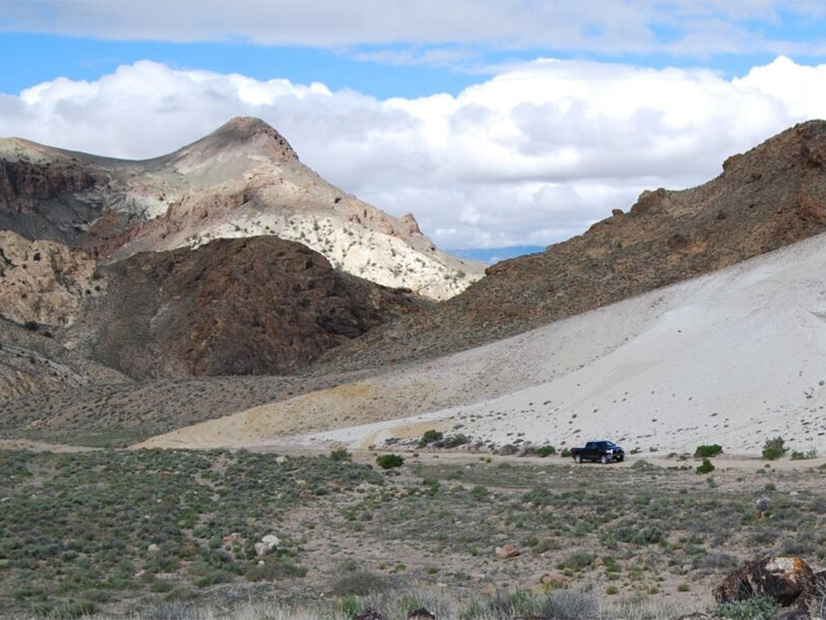A Nevada mining project that could produce enough lithium for 370,000 electric vehicles a year has received a conditional loan offer of $700 million from the Department of Energy.
The funds would go toward Ioneer’s Rhyolite Ridge lithium-boron project in Esmeralda County, Nev. If finalized, the loan would finance the on-site processing of lithium carbonate.
Ioneer said a term sheet for the DOE loan had been finalized, with a loan of up to $700 million and a term of 10 years. The conditional commitment indicates DOE expects to support the project, subject to conditions such as legal, contractual and financial requirements, Ioneer said.
Ioneer Managing Director Bernard Rowe called the proposed loan “the most significant milestone in the history of the company.”
“The term sheet and conditional commitment from DOE demonstrates its strong support for the Rhyolite Ridge project and, if finalized, the loan would be the first-ever by the DOE to provide financing for the processing component of a project where lithium is extracted and refined at site,” Ioneer said this month.
The loan would be made under DOE’s Advanced Technology Vehicles Manufacturing loan program. Lithium is a key component of EV batteries, and DOE estimates the loan could support lithium production for about 370,000 EVs each year.
Developing a U.S. supply chain for critical materials such as lithium is a national priority, according to DOE.
“Onshoring the critical materials supply chain is an important step toward energy independence, lower costs for American consumers and protection from global supply bottlenecks,” DOE said in announcing the loan.
Production in 2026
Demand for lithium is surging as EV adoption grows. The top lithium-producing countries are Australia, Chile and China. Interest in domestic lithium production is strong, but the U.S. has only one lithium mine in operation: Albemarle’s mine at Silver Peak in Nevada.
Ioneer described Rhyolite Ridge as the most advanced undeveloped lithium project in the U.S. Production at the facility is expected to start in 2026.
The project will be a drill-and-blast operation. Lithium and boron products will be made through a process with zero CO2 emissions from electricity generation, the company said.
Boron, in the form of boric acid, will account for about 30% of the project’s revenue. Boron has a wide range of industrial uses, and Ioneer said the co-production of boron will help the company keep its lithium costs down.
Ioneer is partnering with Sibanye-Stillwater, a global mining and metals processing company that has committed $490 million for a 50% stake in the Rhyolite Ridge project.
And Ioneer has offtake agreements with three entities so far. EcoPro Innovation plans to use lithium carbonate from Rhyolite Ridge at its South Korea battery plant. In July, Ioneer signed agreements with Ford Motor and Prime Planet Energy Solutions, which is a joint venture between Toyota and Panasonic.
Permitting Process
In December, the Bureau of Land Management published a notice of intent to prepare an environmental impact statement for the Rhyolite Ridge project. Ioneer called the notice a major milestone toward finishing the permitting process.
The Nevada Department of Environmental Protection issued a water pollution control permit for the project in 2021.
The company has also taken steps in response to the listing of Tiehm’s buckwheat as an endangered species. The plant is found at Rhyolite Ridge.
Ioneer has spent $1.2 million on research to preserve the buckwheat and revised its operations plan to avoid direct impacts to the plant. A Tiehm’s buckwheat greenhouse has been built and is now in operation.
DOE said the Rhyolite Ridge project is expected to be in operation for 26 years, although Ioneer said on its website that there is “significant potential for this to increase.” After operations are finished, the land will be reclaimed and revegetated, according to DOE.




